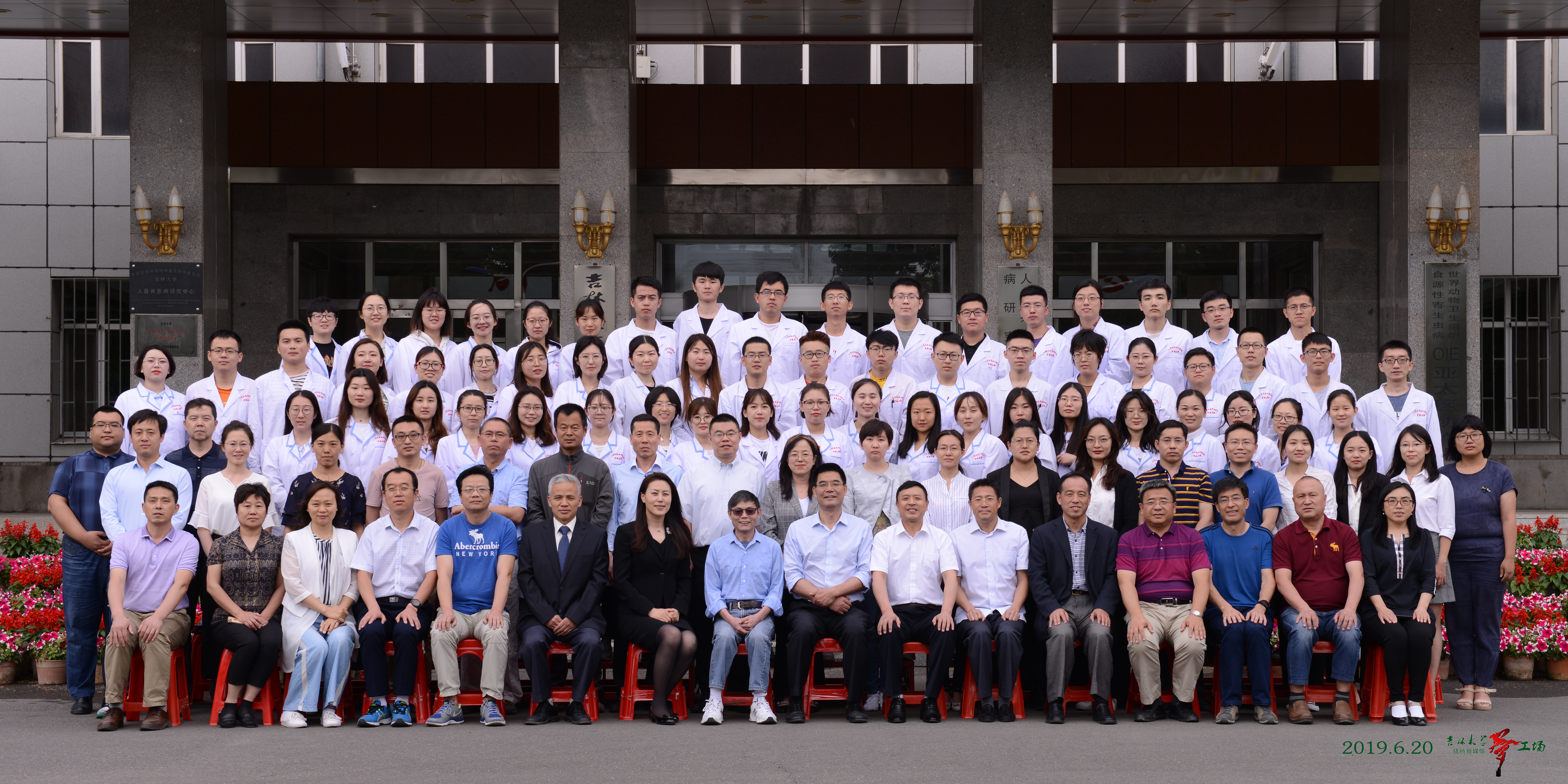 Introduction
Introduction
Introduction
The outbreak and spread of zoonotic diseases such as SARS and highly pathogenic avian influenza have highlighted the serious threat of zoonotic diseases to human survival. In response to this severe situation, in January 2006, Jilin University fully integrated the relevant discipline resources of School of Veterinary Medicine, School of Basic Medicine, First Clinical Hospital and School of Public Health, and established the world's first zoonotic disease research institute in time. It is the first scientific research institution in China that specializes in zoonosis research, enabling zoonosis research to achieve an organic combination of veterinary medicine and medicine. In December 2007, Ministry of Education ratified the qualification of Key Laboratory of Zoonosis Research. It was approved to establish OIE Collaborating Center for Food-borne Parasites in the Asia-Pacific Region in June 2014 and Jilin Province Zoonosis Engineering Laboratory in December 2018. The Institute is the main unit of Jilin University's Veterinary Medicine and Zoonosis peak discipline and double first-class discipline Human and Animal Medicine.
Since its establishment, the institute/key laboratory has given full play to its advantages in medicine and veterinary science, and has gradually formed a distinctive research direction featuring pathogen detection of zoonotic diseases, epidemiological investigation, drug target screening, pathogenic mechanism, etc. At present, the research on Trichinellosis is at the international leading level, and the research on schistosomiasis, iatrogenic fungi and bacteria ranks at domestic leading level. It has successively established substantial cooperative relations and academic exchanges mechanism with many national laboratories in France, Denmark, Japan, and the United States.
The institute/key laboratory has the first batch of doctoral programs in zoonotic diseases in China. It has 77 scientific researchers and 8 part-time professors, including 52 professors, 11 associate professors, 5 lecturers, and 4 senior experimenters. 5experimenters. Among the teachers are 2 academicians of the Chinese Academy of Engineering (double-employed), 2 specially-appointed professors in Changjiang Scholars Award Program of the Ministry of Education, 2 Ten Thousand Talents Program leading talents, 3 person in Thousand Talents Program, 2 winners of National Outstanding Youth Fund, 1 national-level candidate for the New Century Talent Project. It has 2 innovation teams of the Ministry of Education, and 3 innovation teams separately belong to the Ministry of Agriculture, Jilin Province and Jilin University. An advanced scientific research platform that satisfies the basic to clinical treatment of zoonotic diseases: including 1 key laboratory center research platform, 3 medical support platforms (medical pathogenic microorganisms, public health and early warning, infectious disease treatment), 3 Veterinary support platform (Veterinary Drug Engineering Center, Major Animal Epidemic Engineering Center, Changchun National Animal Experimental Center), 1 international research platform (OIE Collaborating Center for Food-borne Parasites in the Asia-Pacific Region ).
In the past five years, it has presided over 178 scientific research projects with 150 million RMB in contract funds. Among them, there are 8 sub-topics of 973, 6 sub-topics of 863, 6 sub-topics of major national science and technology projects, 6 sub-topics of national science and technology support plan projects, 4 national key research and development projects, 4 key projects and 4 key international cooperation and exchange projects of National Natural Science Foundation of China, 1 general project, 48 National Natural Science Foundation general projects, 10 National Natural Science Foundation Youth Fund projects, 1 National Natural Science Foundation emergency management project. There are 64 provincial and ministerial projects, 16 other projects, 3 provincial and ministerial-level innovation team projects (transgenic cloned animals Ministry of Education innovation team; zoonosis Jilin Province innovation team; Coccidial protozoal disease prevention and control Ministry of Agriculture innovation team). 7 provincial first prizes, 3 second prizes, and 43 invention patents have been won. 11 monographs and textbooks, including Science of Zoonosis and Animal Quarantine Inspection and 526 papers (including 411 SCI papers) have been published. The Institute successfully held 13th International Conference on Trichinellosis (2011-Changchun), 12th Academic Symposium of the Veterinary Food Hygiene Branch of CAAV, and participated in the on-site handling of major international and national epidemics (Sierra Leone, Yunnan, Inner Mongolia, etc.) with 204 doctoral students and 685 master students. These achievements have further established the academic status of the institute/laboratory in related research fields in the world, and highlighted the development model led by high-achievement output and high-level talent training.
The institute/key laboratory currently has an area of 4,080 square meters for scientific research, with nearly 25,000 RMB of experimental equipment, which provides a good experimental platform for scientific research. All scientific researchers will work together to build the institute/key laboratory into a scientific research center, early warning and emergency center, disease diagnosis center, and talent training center for zoonotic diseases.

All Rights: Jilin university institute of Zoonosis, Jilin Unversity
Address: 5333 Xi’an Road, Changchun City, Jilin Province, China
E-mail:rsghb@126.com
Post Code:130062 Tel: (+86)431-87836710